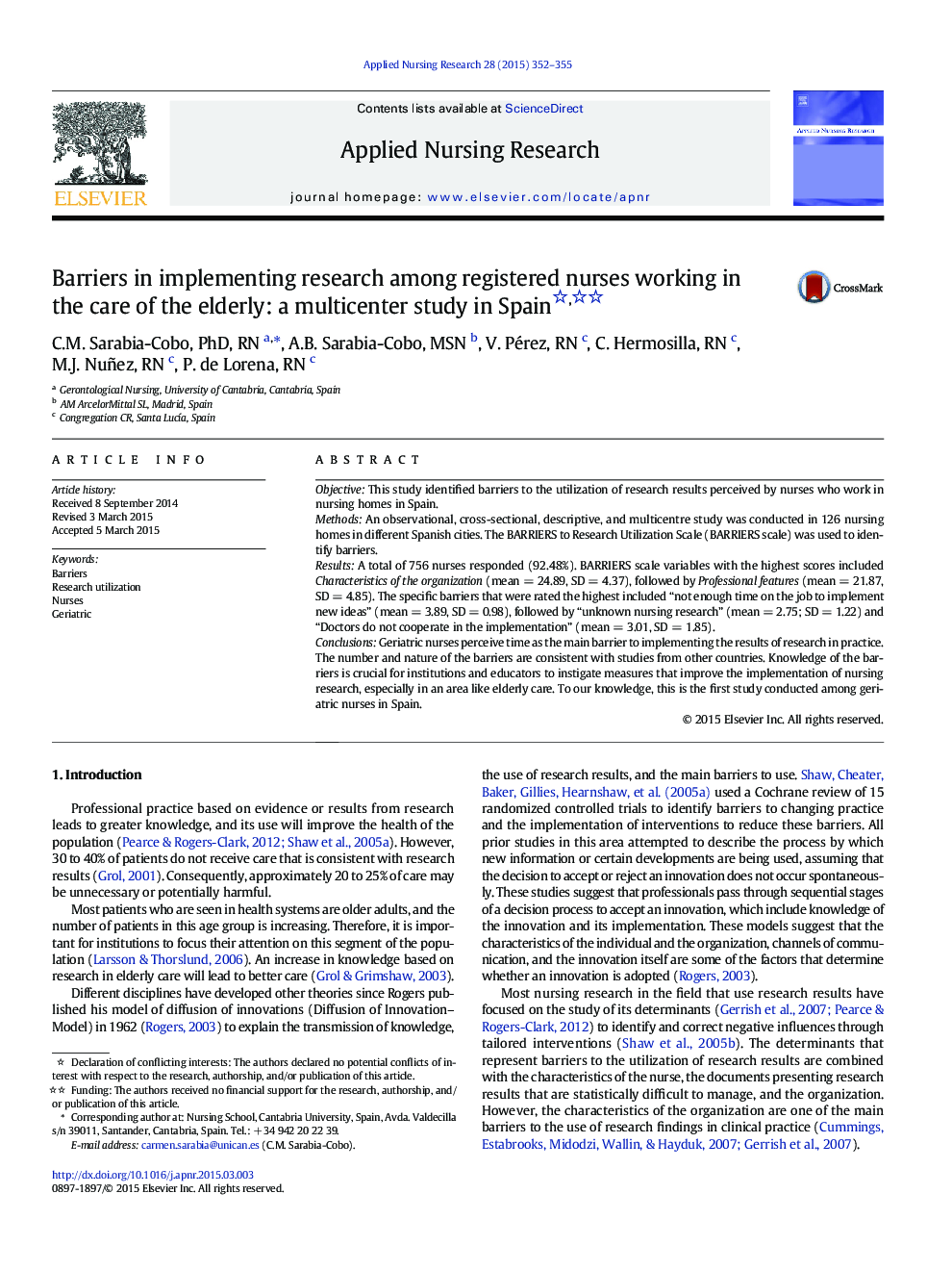| Article ID | Journal | Published Year | Pages | File Type |
|---|---|---|---|---|
| 2644504 | Applied Nursing Research | 2015 | 4 Pages |
ObjectiveThis study identified barriers to the utilization of research results perceived by nurses who work in nursing homes in Spain.MethodsAn observational, cross-sectional, descriptive, and multicentre study was conducted in 126 nursing homes in different Spanish cities. The BARRIERS to Research Utilization Scale (BARRIERS scale) was used to identify barriers.ResultsA total of 756 nurses responded (92.48%). BARRIERS scale variables with the highest scores included Characteristics of the organization (mean = 24.89, SD = 4.37), followed by Professional features (mean = 21.87, SD = 4.85). The specific barriers that were rated the highest included “not enough time on the job to implement new ideas” (mean = 3.89, SD = 0.98), followed by “unknown nursing research” (mean = 2.75; SD = 1.22) and “Doctors do not cooperate in the implementation” (mean = 3.01, SD = 1.85).ConclusionsGeriatric nurses perceive time as the main barrier to implementing the results of research in practice. The number and nature of the barriers are consistent with studies from other countries. Knowledge of the barriers is crucial for institutions and educators to instigate measures that improve the implementation of nursing research, especially in an area like elderly care. To our knowledge, this is the first study conducted among geriatric nurses in Spain.
